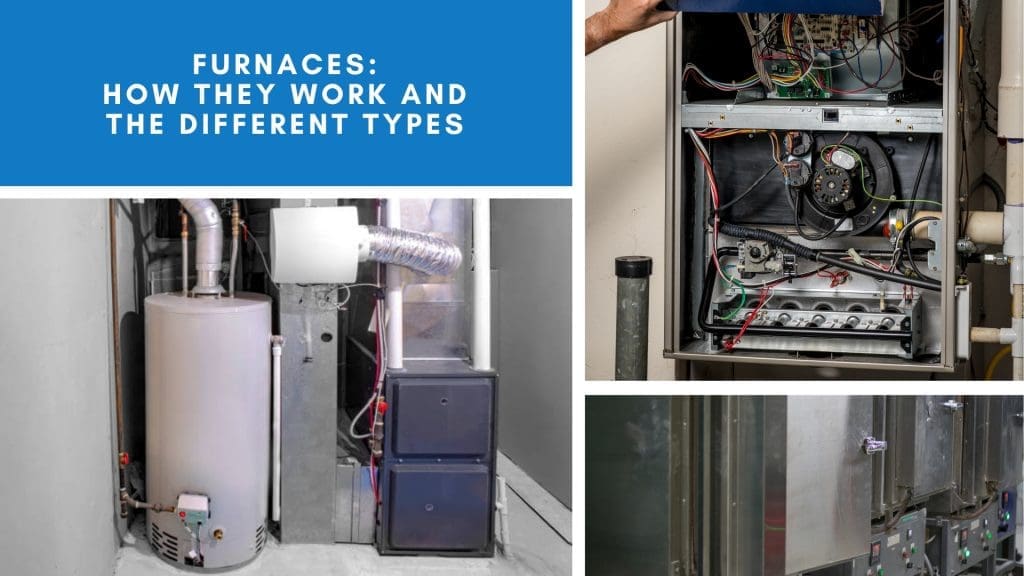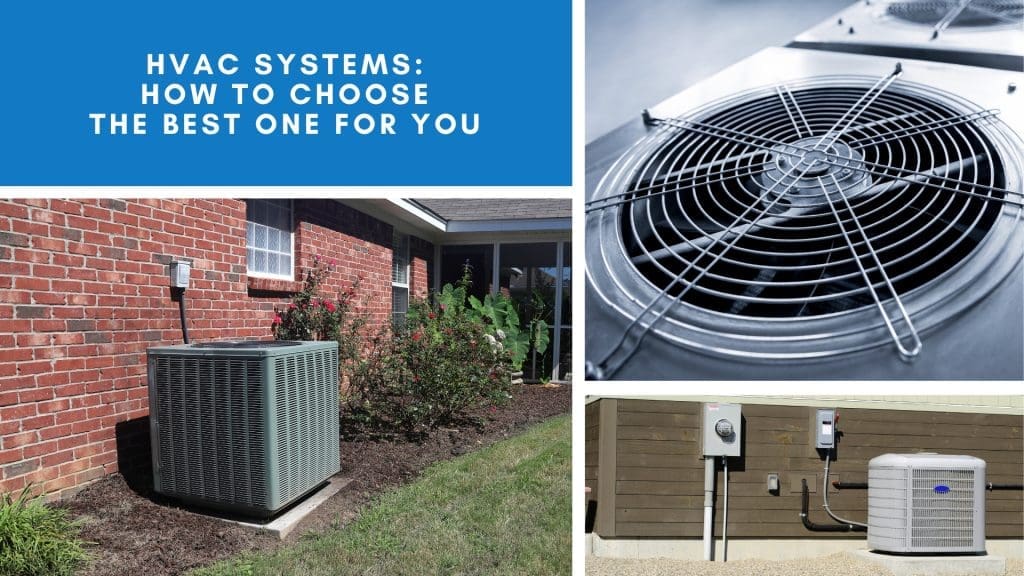TL;DR Summary for Those in a Hurry:
- Improve air quality by using the right air purifier filters, which trap pollutants like dust, pollen, smoke, and allergens to keep your indoor air cleaner and healthier.
- The guide explains the differences between filter types — such as HEPA, activated carbon, and pre-filters — and what each removes from the air.
- Choosing the correct filter for your space and needs helps reduce respiratory irritants and supports better overall health.
- Regular filter maintenance and timely replacements ensure your air purifier continues to perform at its best.
- Combining air purification with good ventilation and HVAC upkeep maximizes indoor comfort and cleaner air year-round.
Breathing clean air is essential for a healthy life. In Los Angeles, where air quality can be a concern, air purifiers play a crucial role. They help remove pollutants, allergens, and other harmful particles from the air. To truly Improve Air Quality, it’s important to choose the right air purifier and maintain it properly.
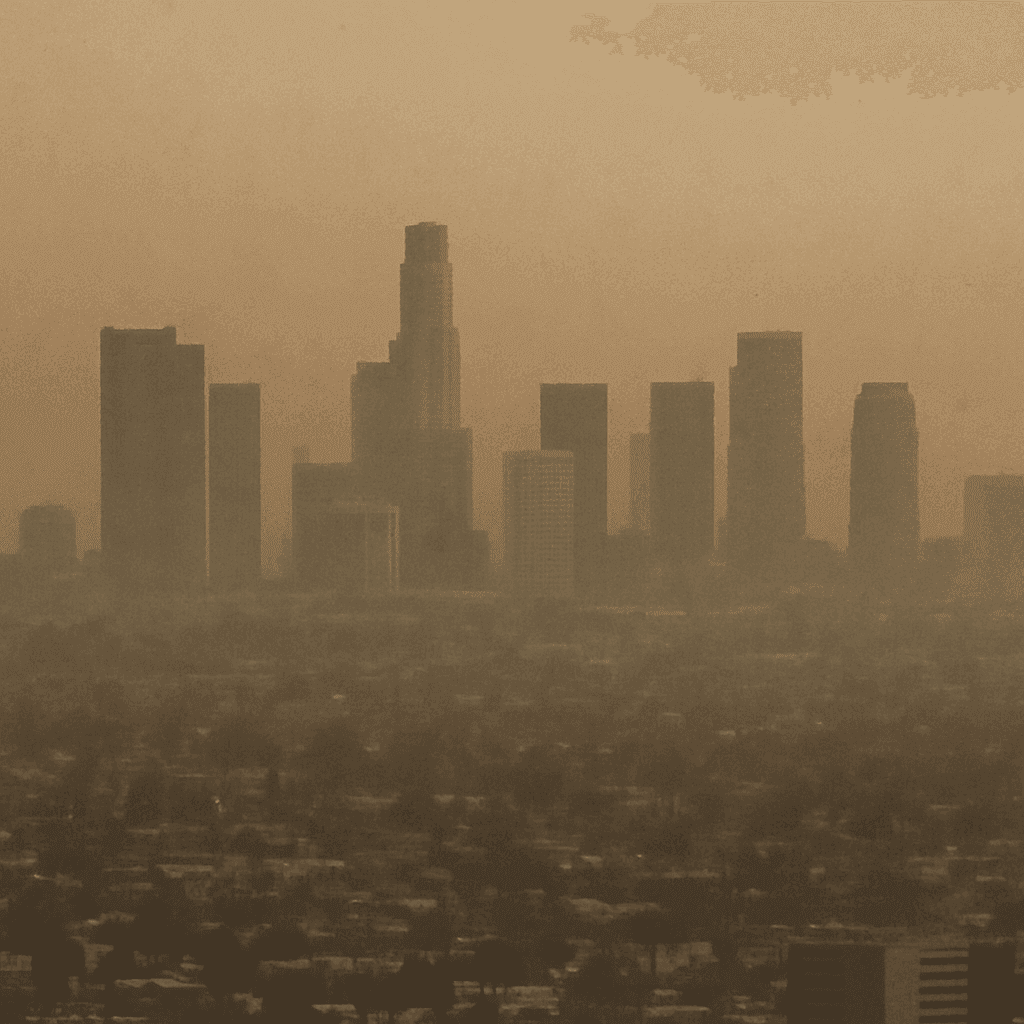
Understanding different types of air purifier filters is key to improving indoor air quality. Each filter type has unique benefits and functions. From HEPA filters to activated carbon, each serves a specific purpose.
HEPA filters are known for their efficiency in capturing tiny particles. Activated carbon filters excel at removing odors and volatile organic compounds. UV-C light filters target bacteria and viruses, adding another layer of protection.
Choosing the right filter can be overwhelming. But with the right information, you can make an informed decision. Regular maintenance and timely replacement of filters ensure optimal performance.
This guide will help you navigate the world of air purifier filters. Whether you’re a stay-at-home mom, a small business owner, or working from home, clean air is within reach. Let’s explore how air purifier filters can improve your indoor environment.
Why Indoor Air Quality Matters in Los Angeles
Los Angeles often battles poor air quality. This is due to pollution from traffic, industry, and wildfires. Poor air quality impacts health and quality of life.
Indoors, air quality can be just as concerning. Pollutants accumulate in closed spaces, affecting families and workers. This emphasizes the need for effective air purification.
Residents must prioritize cleaner indoor air. Here’s why:
- It reduces exposure to allergens and irritants.
- It helps protect respiratory health, crucial for children and the elderly.
- It contributes to a more comfortable living and working environment.
For parents and professionals alike, ensuring good air quality is vital. It means fewer sick days and better overall well-being. Investing in proper air purifiers can make a meaningful difference. Seeking expert advice and choosing quality solutions are key steps for improving indoor air quality in your Los Angeles home or business.
Understanding the Air Quality Index (AQI) and Its Impact
The Air Quality Index, or AQI, offers a simple way to gauge air pollution levels. It’s vital for residents in cities like Los Angeles to monitor AQI regularly. This helps decide when to limit outdoor activities.
AQI values range from 0 to 500, with higher numbers indicating greater pollution and health risks. Colors, from green to maroon, signal air quality levels, from good to hazardous.
Key AQI categories include:
- Good (0-50): Air quality is satisfactory.
- Moderate (51-100): Acceptable, but some pollutants might affect sensitive individuals.
- Unhealthy (101-150): May cause discomfort for those with respiratory issues.
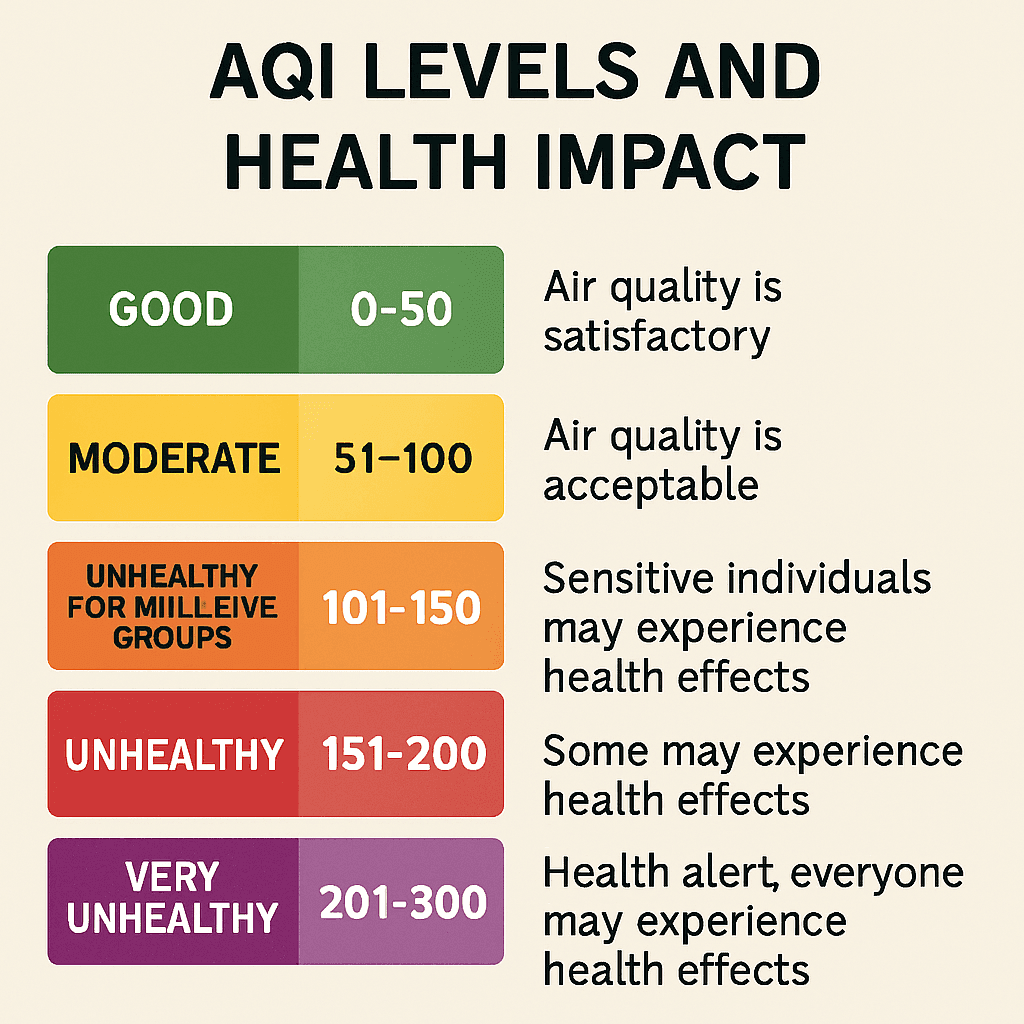
Understanding AQI empowers you to make informed decisions. Planning activities based on AQI can protect your family’s health. Indoors, using an air purifier helps maintain cleaner air regardless of outdoor AQI conditions.
How Air Purifiers Work: The Basics
Air purifiers cleanse indoor air by trapping particles and pollutants. They use a fan to draw in air, passing it through various filters. This process reduces contaminants and improves air quality.
Key components of an air purifier include:
- Filters: Capture particles like dust, pollen, and smoke.
- Fan: Facilitates air circulation through the unit.
- Pre-Filter: Traps larger particles, extending the main filter’s lifespan.
The result is cleaner, fresher air distributed back into your living space. Effective air purifiers can significantly reduce allergens and odors, aiding in better health.
Different models may incorporate additional features, like UV light or ionizers, to tackle specific pollutants. Understanding the core components helps in selecting the right air purifier tailored to your needs. Regular maintenance ensures continued performance and efficiency.
Types of Air Purifier Filters Explained
Choosing the right filter is crucial for achieving the best air quality. Various types of filters target different pollutants. Here’s an overview of common filter types:
- HEPA filters: Capture small particles down to 0.3 microns.
- Activated carbon filters: Absorb odors and chemicals.
- UV-C filters: Use UV light to neutralize germs.
Each filter type serves a unique purpose. Understanding these functions aids in selecting the appropriate filter for your needs. Integrated systems often combine various filters for maximum efficiency and comfort.
HEPA Filters: The Gold Standard
HEPA filters are renowned for their exceptional efficiency. They capture 99.97% of particles as small as 0.3 microns. These filters are highly effective against common allergens like pollen, dust mites, and pet dander.
HEPA stands for High-Efficiency Particulate Air. These filters work by forcing air through a fine mesh that traps harmful particles. They are ideal for individuals with allergies or asthma due to their superior filtration capabilities.
Advantages of HEPA filters include:
- Efficient particle removal: Excellent for small particles and allergens.
- Improved air quality: Beneficial for health-conscious individuals.
- Long lifespan: Provides extensive filtration before replacement.
HEPA filters are often used in various settings, from homes to hospitals. Regular maintenance is essential to sustain their high performance. Many purifiers incorporate HEPA filters as part of a multi-stage system for enhanced air cleanliness.
True HEPA vs. HEPA-Type Filters
True HEPA filters are the industry standard, capturing nearly all tiny particles. They are tested to meet rigorous standards for efficiency. In contrast, HEPA-type filters are less stringent in filtering capabilities.
HEPA-type filters may capture larger particles but aren’t as thorough. They are often cheaper but may not provide the same level of protection. For sensitive environments or severe allergies, true HEPA filters are advised.
Key differences:
- Efficiency: True HEPA offers superior performance.
- Testing Standards: True HEPA is rigorously tested.
- Price: HEPA-type is more affordable.
Opt for true HEPA filters if high air quality is a priority.
Activated Carbon Filters: Tackling Odors and VOCs
Activated carbon filters excel at removing odors and volatile organic compounds (VOCs). They use porous carbon to adsorb gases and chemicals. This feature is particularly useful in urban areas with elevated pollution levels.
These filters are essential for:
- Removing odors: Effective against smoke and cooking smells.
- Reducing VOCs: Ideal for new furniture, paint fumes, and household chemicals.
Activated carbon filters complement HEPA filters in many air purifiers. They target gaseous pollutants that HEPA filters cannot capture. Regular replacement ensures they remain effective over time.
UV-C Light Filters: Fighting Germs and Viruses
UV-C light filters employ ultraviolet light to destroy pathogens. They inactivate bacteria and viruses, reducing illness spread. This technology is crucial in health-sensitive settings like hospitals or nurseries.
Key benefits:
- Sterilization: Destroys microorganisms on contact.
- Complementary: Often paired with HEPA and carbon filters.
- Prevention: Reduces spread of airborne diseases.
UV-C filters require periodic cleaning to maintain efficiency. They add an extra layer of protection in air purifiers. While effective against germs, they don’t remove particles or odors.
Ionic and Electrostatic Filters: Pros and Cons
Ionic and electrostatic filters charge particles to remove them. These filters attract pollutants and capture them on metal plates. They don’t use traditional filter materials, which can reduce waste.
Pros include:
- Filter-free operation: No regular filter replacement needed.
- Effective on fine particles: Captures dust, smoke, and allergens.
Cons to consider:
- Ozone production: Some models may emit ozone as a by-product.
- Cleaning required: Metal plates need regular cleaning.
While efficient, consider potential ozone emissions. Such filters are suitable for areas where particle removal is prioritized.
Pre-Filters and Washable Filters: First Line of Defense
Pre-filters catch large particles before they reach main filters. They extend the lifespan of more costly filters. Frequently washable, they are cost-effective and easy to maintain.
Pre-filters benefit air purifiers by:
- Protecting main filters: Capture pet hair and large dust particles.
- Increasing efficiency: Allow main filters to focus on smaller particles.
- Reducing costs: Delay the need for expensive filter replacements.
They are especially useful in pet-friendly homes. Ensure regular cleaning to maintain their effectiveness and prolong the purifier’s life.
Specialty Filters for Unique Needs
In some situations, standard filters might not suffice. Specialty filters provide solutions for unique and challenging environments. These filters are designed to target specific concerns you may face.
For areas with high smoke levels, smoke filters are essential. These filters specialize in removing fine smoke particles. They help those living in wildfire-prone regions or cities with heavy pollution.
Other specialty filters include:
- Pollen filters: Great for allergy seasons.
- Pet-specific filters: Tackle pet dander and odors.
- Chemical and gas filters: Target industrial emissions or specific household chemicals.
Selecting the correct specialty filter can greatly enhance air quality for unique needs. Consider the specific pollutants in your environment. This thoughtful choice helps improve both health and comfort significantly.
Choosing the Right Air Purifier Filter for Your Home or Business
Selecting the perfect filter can seem daunting, but it’s vital for improving air quality. Understand your specific needs and environment before making a choice. This will ensure the filter effectively caters to your requirements.
Consider the size of the room where the air purifier will be used. Large spaces may require more powerful purifiers. If indoor allergies are a concern, a HEPA filter would be beneficial. Families with pets should look into pet-specific options, while businesses might prioritize reducing VOCs.
Factors to consider:
- Room size: Match the purifier’s capacity to your space.
- Pollutants: Identify the primary air quality concerns.
- Maintenance: Evaluate filter replacement and maintenance costs.
- Budget: Balance cost against necessity.
The right filter will help your home or business maintain a healthier, more comfortable environment. Ensuring you make the correct choice is a valuable investment in well-being.
Where to Buy HEPA and Other Air Purifier Filters in Los Angeles
Finding quality air purifier filters in Los Angeles is easier than you might think. With numerous local and online options, you’re covered. First, consider visiting trusted appliance stores in your area.
Local hardware stores often stock various filters, including HEPA types. Staff can provide guidance and recommendations based on your needs. Additionally, well-known retailers such as Home Depot and Lowe’s typically have a wide selection available.
For online options, websites like Amazon, Walmart, and specialty air purifier stores offer numerous filter types. Be sure to check for compatibility with your air purifier model and read user reviews for insights.
- Local Hardware Stores: Easy access, knowledgeable staff.
- Large Retailers: Various options at affordable prices.
- Online Platforms: Convenient with customer ratings.
Whether shopping in person or online, ensure to verify authenticity. Reliable filters contribute significantly to your air quality. Make the right choice to keep your space healthy.
How Often Should You Replace Air Purifier Filters?
The frequency of replacing air purifier filters depends on several factors. Key elements include the type of filter and your home’s air quality. Generally, filters should be replaced every 6 to 12 months.
HEPA filters, known for capturing tiny particles, may need to be changed less frequently. However, if you’re battling high pollution levels, consider more frequent replacements.
Certain filters, like activated carbon, might require replacement every three months. These filters specialize in eliminating odors and volatile organic compounds (VOCs).
To ensure optimal performance and air quality, keep an eye out for the following:
- Visible Dirt and Dust: Check filters regularly.
- Diminished Airflow: A sign the filter is clogged.
- Persistent Odors: Indicates it’s time for a change.
Staying proactive with filter maintenance ensures clean air in your home.
Signs Your Air Purifier Filter Needs Replacement
An air purifier filter’s performance declines over time. Identifying signs of necessary replacement is crucial.
One common indicator is a noticeable decrease in airflow. When air seems less forceful, a clogged filter could be to blame.
Persistent odors lingering in your space despite using your purifier also suggest the need for a fresh filter. This is especially true for activated carbon filters.
Visibly dirtied or discolored filters are another telltale sign. Physically inspect them to check their condition regularly.
Be aware of these signs:
- Increased allergy symptoms: Filter might not capture allergens effectively.
- Unusual noises: Your purifier might work harder with a blocked filter.
- Dust buildup: Excess dust circulating in your rooms.
Regular inspections will help maintain indoor air quality and ensure your air purifier operates efficiently.
Cost of Air Purifier Filters: What to Expect
Understanding the cost of air purifier filters can be essential for budgeting. Prices can vary based on type and brand.
HEPA filters, known for their effectiveness, often cost more. Their superior filtration capability justifies this higher price.
Activated carbon filters tend to be mid-range. They efficiently remove odors and VOCs at a reasonable cost.
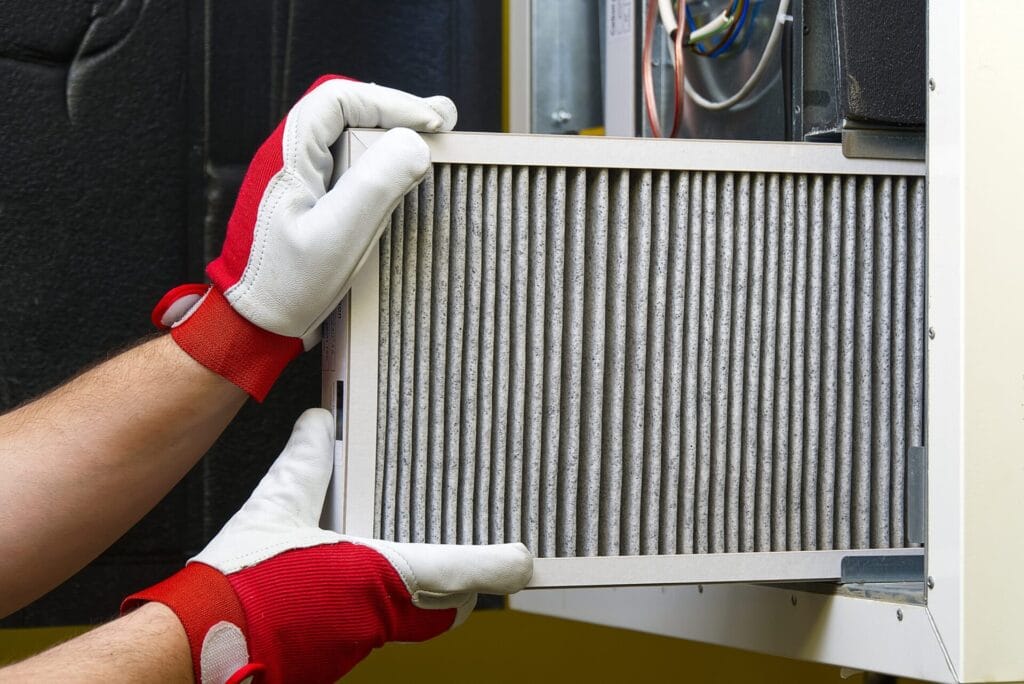
Less expensive options include pre-filters, which can be washable or disposable. These help extend the life of main filters.
Here’s a quick rundown of typical costs:
- HEPA filters: $20-$100 per filter
- Activated carbon filters: $10-$50 per filter
- Pre-filters: $5-$20 per filter
Shop around and compare prices across different sellers. Look for discounts or bulk purchasing deals to save money. Considering long-term replacement expenses will help manage your household budget effectively.
Maintenance Tips for Air Purifiers and Filters
Regular maintenance of your air purifier ensures optimal performance. Proper care prolongs the life of both the purifier and its filters.
Start by reading the manufacturer’s instructions. This provides crucial guidelines for filter replacement and purifier upkeep.
Dust and dirt can accumulate quickly. Cleaning the exterior and any washable parts helps maintain efficiency.
Here are essential tips to keep in mind:
- Check filters regularly: Inspect every month for buildup.
- Clean pre-filters: Rinse or vacuum to keep them functional.
- Replace as needed: Follow the 6-12 month guideline or sooner if required.
- Monitor performance: Reduced airflow or odor can signal a filter change.
Maintaining air purifiers enhances air quality at home or work. Set a reminder for regular checks to prevent any lag in performance. This proactive approach is key to breathing clean air consistently.
Air Purifiers and HVAC: Working Together for Cleaner Air
Combining air purifiers with your HVAC system can significantly enhance indoor air quality. Each plays a vital role in creating a healthy environment.
Air purifiers are designed to capture pollutants before they circulate through your home. They are particularly effective in eliminating allergens and odors.
Meanwhile, HVAC systems maintain a consistent indoor climate, circulating purified air efficiently. By working together, they provide comprehensive air cleaning.
Consider the following integration tips:
- Choose compatible systems: Ensure your air purifier complements your HVAC.
- Regular filter changes: Align with HVAC maintenance schedules.
- Evaluate placement: Optimize purifier positioning for whole-home coverage.
By using both systems, you can achieve superior air purification. It’s a strategic approach to cleaner, healthier air for your home or business.
Benefits of Air Purifiers for Families, Businesses, and Remote Workers
Air purifiers are essential in homes with families, offering significant health benefits. They reduce allergens, dust, and pollutants, ensuring healthier living spaces for children and adults alike. Clean air can enhance overall well-being and comfort.
For businesses, maintaining a clean indoor atmosphere enhances employee productivity. Improved air quality can lead to fewer sick days and increased focus among staff. Clients also appreciate a fresh environment, contributing to a positive business image.
Remote workers often face unique challenges. Working from home requires optimal conditions to maintain productivity. Air purifiers ensure clean air, vital during long work hours.
Here’s why air purifiers are beneficial:
- Allergen reduction: Minimize allergy triggers for sensitive individuals.
- Odor elimination: Maintain a pleasant-smelling environment.
- Productivity boost: Cleaner air can enhance focus and efficiency.
Investing in air purifiers leads to better health and work performance. It’s a smart choice for improving indoor air quality across different spaces.
Common Myths About Air Purifier Filters Debunked
There are several myths surrounding air purifiers and their filters. One common misconception is that all air purifiers are the same. In reality, they vary widely in quality and effectiveness.
Another myth suggests air purifiers don’t need regular maintenance. Without proper upkeep, their performance declines significantly. Understanding this is crucial for maintaining efficiency.
Some people believe air purifiers eliminate the need for cleaning. While they reduce airborne particles, regular cleaning is still essential for a spotless home.
Here’s a list of myths about air purifiers:
- Myth: All filters are alike.
- Fact: Different types serve specific purposes.
- Myth: They remove all allergens instantly.
- Fact: Consistent use is key to noticing improvements.
Understanding the facts about air purifiers helps in making informed decisions. Make sure you’re using the right tools effectively for optimal air quality.
Why Trust LC Heating and Air Conditioning for Your Air Quality Needs?
When it comes to air quality, you want a partner you can trust. At LC Heating and Air Conditioning in Hollywood, we’re committed to enhancing your indoor environment with expertise and care.
Our team consists of seasoned professionals who understand the nuances of air purification systems. We don’t just sell products; we provide solutions tailored to your specific needs.
Reliability is key. We’re proud of our reputation for being the go-to experts for air quality solutions in the Los Angeles area. We prioritize your well-being and satisfaction.
Here’s why clients choose us:
- Proven expertise and experience
- Customer-first mindset
- Tailored, reliable solutions
Reach out to us at (818) 858-7080. We’re here to ensure you breathe easier.
Conclusion: Breathe Easier with the Right Air Purifier Filter
Choosing the right air purifier filter is essential for a healthier home or office. It brings cleaner air, reduces allergens, and minimizes pollutants.
Your well-being depends on breathing quality air. With a suitable filter, you enhance comfort and productivity within your indoor space.
Don’t compromise on air quality. Trust in reliable guidance from professionals like LC Heating and Air Conditioning to make informed decisions and breathe easier today.
Using quality filters in your air purifier is a practical way to improve air quality by capturing harmful particles and odors. Understand filter types and maintenance to get the best performance and healthier indoor air.
FAQ:
How do air purifier filters actually improve air quality?
Air purifier filters capture airborne particles like dust, pollen, mold spores, and VOCs as air passes through them, removing these pollutants and returning cleaner air to your space.
What types of filters are most effective for cleaning indoor air?
High-efficiency particulate air (HEPA) filters are the gold standard for removing fine particles, while activated carbon filters help reduce odors and gaseous pollutants.
Can air purifiers help reduce allergy and asthma symptoms?
Yes — by removing common airborne allergens like dust mite debris, pet dander, and pollen, air purifiers can create a more comfortable environment for people with allergies or respiratory concerns.
How often should I replace air purifier filters for optimal air quality?
Filters generally need regular replacement — HEPA filters every 6–12 months and activated carbon filters more frequently — to maintain peak performance and continue improving indoor air.
Are there any limitations to what air purifiers can filter out?
Air purifiers are great for particulates and some gases, but they may be less effective for very large particles or certain chemical pollutants unless paired with the right filter type and proper ventilation.
Where should I place an air purifier for best results?
Place the unit in open areas with good airflow — near pollution sources like entryways or high-occupancy rooms — and avoid blocking vents for the most effective air cleaning.

